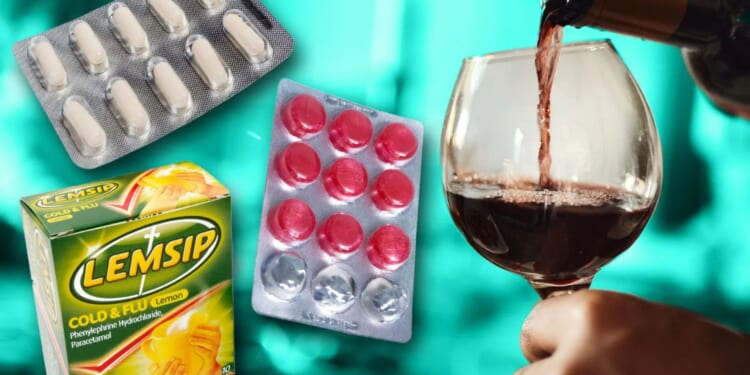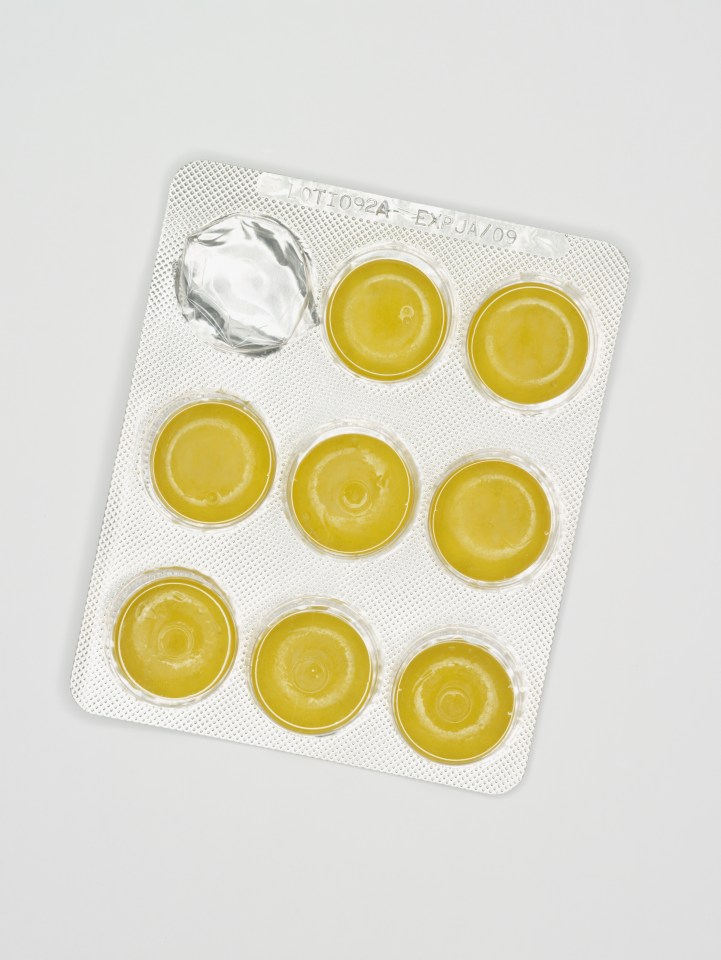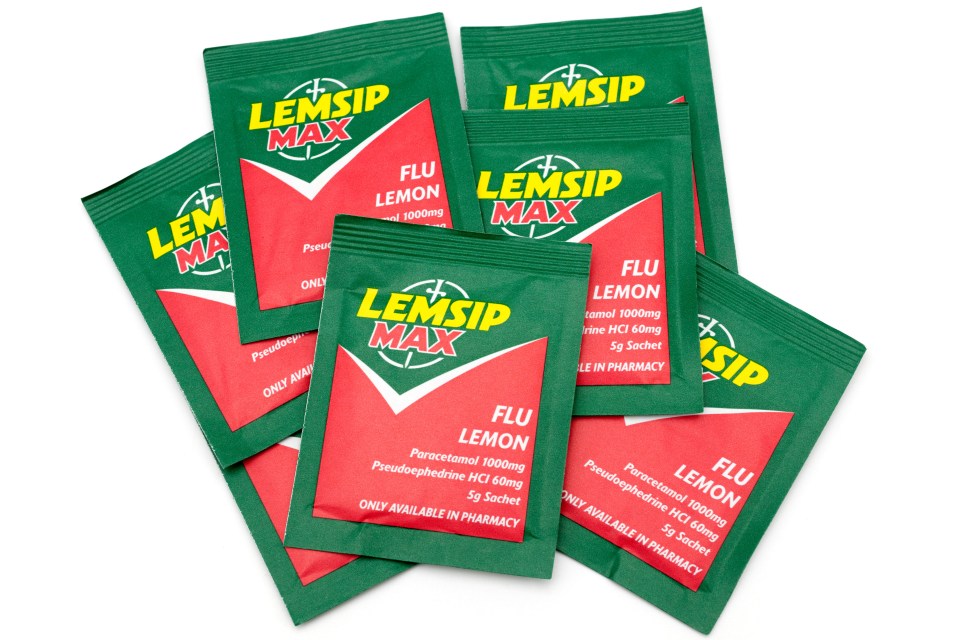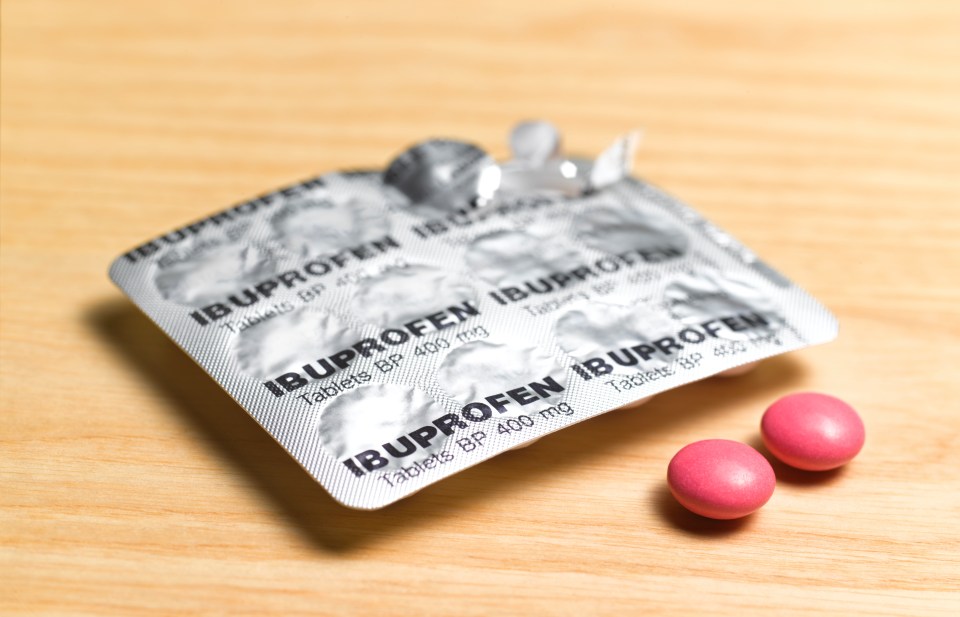A PHARMACIST has revealed three over-the-counter medicines you should never mix with booze or risk side effects – from dizziness and drowsiness, to internal bleeds, hallucinations and deadly liver issues.
With cold and flu season now upon us, it’s likely you’re sneezing, coughing or wiping up a streaming nose.
You may well feel better after medicating, but don’t be tempted to nip into the pub afterwards, clinical pharmacist at Oxford Online Pharmacy, Kiran Jones, warned.
“Drinking alcohol can be extremely dangerous if you’re taking some of these popular over-the-counter medications,” she said.
From Strepsils to Lemsip and common painkillers, here are three over-the-counter meds you shouldn’t mix with alcohol.
1. Cough medicine and throat lozenges
Have a sore throat or cough?
It’s likely caused by a cold, the flu, or even the new Covid variant floating around – known for causing a hoarse voice.
“But reaching for another drink when taking cough medicine or throat lozenges could be a mistake,” Kiran warned.
“Dextromethorphan is a common ingredient in branded products like Covonia, Benylin, or Strepsils,” the pharmacist said.
“Mixed with alcohol, you could experience drowsiness, dizziness, an upset stomach, trouble breathing, a headache, fast heart rate and motor impairment.
“These effects can last for several hours and, if abused severely, can lead to serious complications like hallucinations, a drop in body temperature or even respiratory failure.”
2. Cold and flu remedies
If you’re feeling under the weather, remedies like Lemsip might be your first choice for easing symptoms.
They contain ingredients like paracetamol and phenylephrine hydrochloride, which can help alleviate pain and clear out blocked sinuses.
“But mixing them with alcohol could be a recipe for disaster,” Kiran warned.
“While paracetamol may not have short-term effects and could relieve hangover headaches, it can lethally interact with your liver if regularly used in conjunction with alcohol.
“Meanwhile, phenylephrine – which is also found in Sudafed – mixed with alcohol can make you dizzy and drowsy and even mask the feeling of intoxication – causing unsafe levels of intoxication.”
Can you take ibuprofen and paracetamol together?
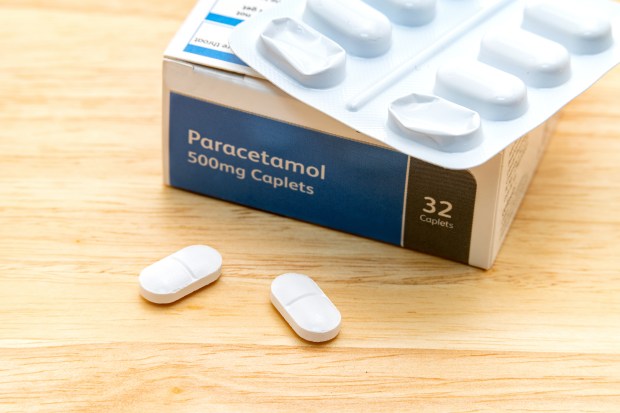
If paracetamol is Britain’s first port of call, ibuprofen is a close second.
Ibuprofen, a non-steroidal anti-inflammatory drug, works in a slightly different way to paracetamol and helps to reduce inflammation.
According to the NHS, it can be taken together with paracetamol.
The NHS says: “It’s safe to take paracetamol with other types of painkiller that do not contain paracetamol, such as ibuprofen, aspirin or codeine.”
However, you should not take paracetamol alongside any other medication that contains paracetamol.
Plus, some cold and flu remedies already contain ethanol, the chemical in alcoholic drinks.
According to Kiran, “each dose of Lemsip contains 3g of ethanol”, which amounts to “32ml of wine or 76ml of beer“.
“So you’re already a small glass down before you start drinking,” the pharmacist stated.
3. Anti-inflammatory medication
Anti-inflammatory medications like ibuprofen are just what you need to treat headaches, aches and inflammation.
But don’t be tempted to drink while you’re on them.
“Consuming moderate or excessive amounts of alcohol while using them can increase the risk of short-term side effects such as stomach or digestive tract irritation, drowsiness and problems with coordination,” Kiran said.
“Long-term effects can include gastrointestinal bleeding and long-term kidney problems.”
The NHS recommends that you don’t take paracetamol if you have liver or kidney problems, or you regularly drink more than 14 units a week – the maximum recommended amount of alcohol.
Last week, health chiefs warned Brits to get vaccinated ahead of the looming “tripledemic” of serious viruses, as cases of flu and Covid begin to creep up.
The number of postive Covid tests in the UK have jumped from 7.6 per cent to 8.4 per cent in just a week, fresh data suggests.
The latest strain, dubbed Stratus, comes in two subvariants, XFG and XFG.3.
Doctors say the bug is more transmissible than earlier versions, but doesn’t cause more severe symptoms.
Unlike its predecessors, Stratus, it is often marked by a hoarse or raspy voice, a symptom that could easily be mistaken for laryngitis or a simple cold.
Flu has also inched up – from 1.1 per cent to 1.3 per cent.
Which cold and flu remedies actually work?
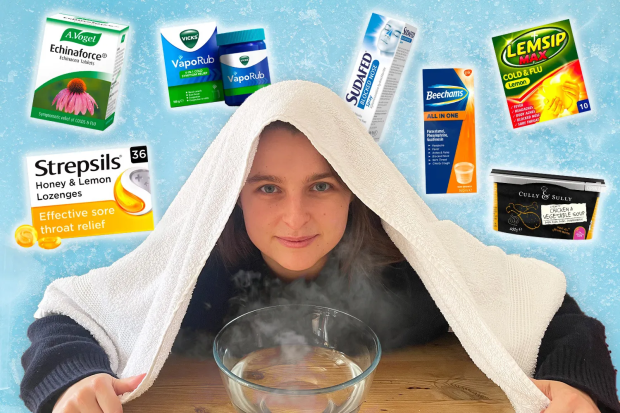
Sun Health reporter Isabel Shaw put nine well-known cold and flu remedies when she was struck with a lurgy.
Over the course of a week, she tried products targeted at all symptoms associated with cold and flu, as well as treatments that only aimed to get rid of specific issues.
These included:
- Hot honey and lemon
- Steam inhalation and Vicks Vaporub
- Echinacea
- Chicken soup
- A spicy curry
- Beechams All in One Oral Solution
- Strepsils
- Lemsip Max
- Sudafed Blocked Nose Spray
She took into account pain reduction, and how quickly and for how long they worked.
Read her full verdicts here.

